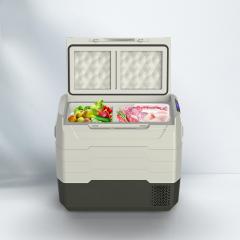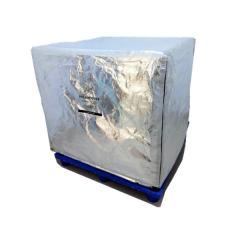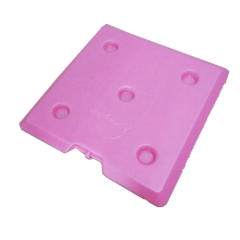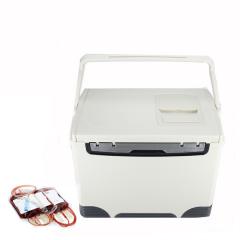In the intricate web of global supply chains, the cold chain industry stands as a vital cog, ensuring the integrity and freshness of perishable goods from farm to fork. From fresh produce and dairy products to pharmaceuticals and vaccines, the seamless preservation of these commodities relies heavily on advanced technologies and innovative practices. Today, the cold chain industry is undergoing a paradigm shift, driven by technological advancements and a heightened focus on sustainability, reshaping the way we transport, store, and monitor temperature-sensitive goods.
The Rise of Smart Cold Chain Solutions
At the forefront of this revolution lies the integration of smart technologies. IoT (Internet of Things) devices, such as GPS trackers, temperature sensors, and RFID tags, have revolutionized the visibility and control within the cold chain. These devices provide real-time insights into the location, temperature, and condition of goods, enabling swift intervention in case of deviations. This level of transparency not only minimizes wastage but also ensures regulatory compliance and consumer safety.
Sustainable Practices Gain Momentum
Sustainability is no longer an optional consideration; it's a necessity. The cold chain industry is embracing eco-friendly alternatives to reduce its carbon footprint. This includes the adoption of renewable energy sources for powering refrigerated transport and storage facilities, the use of biodegradable packaging materials, and the optimization of routes to minimize fuel consumption. By integrating circular economy principles, the sector aims to create a more resilient and environmentally responsible supply chain.
Automation and Robotics Streamline Operations
Automation and robotics are transforming the logistics of cold storage facilities. Automated storage and retrieval systems (AS/RS) and robotic arms are now commonplace in modern warehouses, enhancing efficiency and reducing human error. These technologies enable faster processing times, increased storage density, and improved worker safety by minimizing manual handling of heavy or fragile goods.
Data Analytics Drives Decision-Making
Big data and advanced analytics are empowering cold chain stakeholders with invaluable insights. By analyzing vast amounts of data generated by IoT devices and other sources, companies can identify patterns, predict demand, and optimize their operations. Predictive maintenance, for instance, uses AI algorithms to anticipate equipment failures, enabling proactive repairs and minimizing downtime. This data-driven approach ensures continuous improvement and enhances overall performance.
Blockchain Technology Ensures Transparency and Trust
Blockchain, with its immutable ledger system, is transforming the cold chain industry by enhancing traceability and trust. By recording every step of a product's journey, from production to consumption, blockchain provides consumers, regulators, and other stakeholders with unprecedented visibility into the supply chain. This not only bolsters consumer confidence but also facilitates swift recalls in case of contamination or quality issues.
Conclusion
The cold chain industry is at the dawn of a new era, where innovation and sustainability are driving unprecedented progress. By leveraging smart technologies, embracing eco-friendly practices, automating processes, and harnessing the power of data and blockchain, the sector is poised to deliver unparalleled levels of efficiency, safety, and environmental responsibility. As we look ahead, the future of the cold chain industry is bright, with endless possibilities for continued growth and improvement.

 English
English  français
français русский
русский italiano
italiano español
español português
português العربية
العربية 日本語
日本語 한국의
한국의 magyar
magyar










